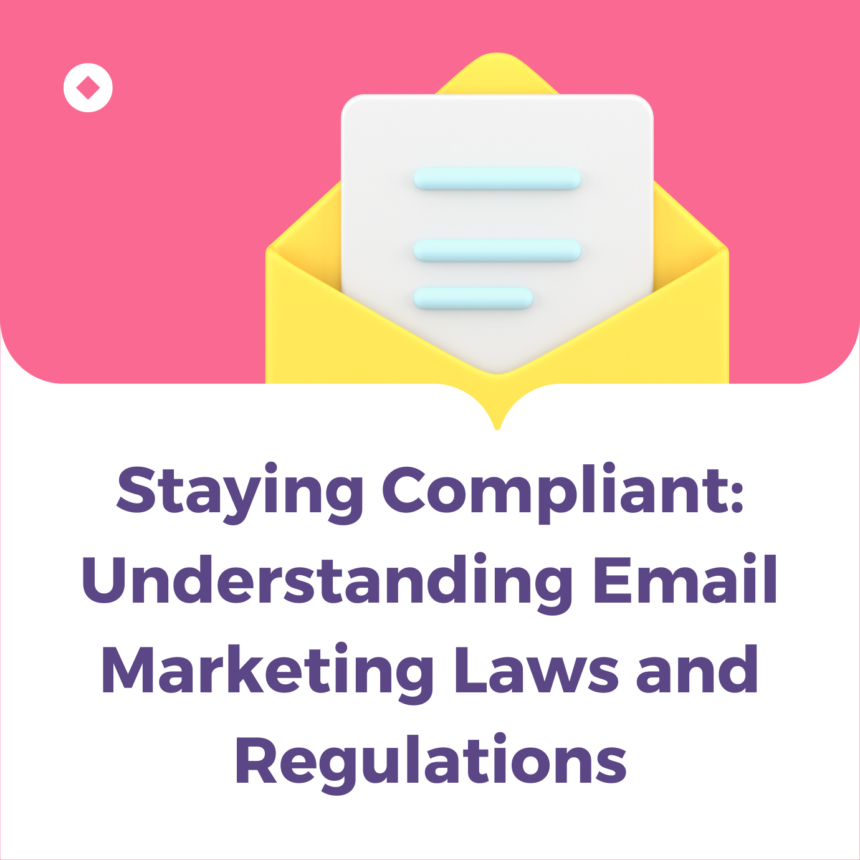Email marketing is a powerful tool for businesses, but it’s important to understand and adhere to the laws and regulations governing email communications. By staying compliant, you can build trust with your audience, maintain a positive reputation, and avoid legal issues. Here are key laws and regulations to consider when engaging in email marketing:
1. CAN-SPAM Act: The CAN-SPAM Act is a U.S. law that sets guidelines for commercial email messages. It requires that your emails include accurate sender information, provide a clear and easy way to unsubscribe, and avoid deceptive subject lines. Compliance with the CAN-SPAM Act is essential for businesses sending commercial emails to recipients in the United States.
2. General Data Protection Regulation (GDPR): The GDPR is a regulation enacted by the European Union (EU) to protect the personal data and privacy of EU residents. If you send emails to individuals located in the EU or collect their personal data, you must comply with GDPR requirements. Obtain proper consent, provide clear privacy policies, and offer easy opt-out options to comply with GDPR.
3. Canada’s Anti-Spam Legislation (CASL): CASL is a Canadian law that regulates commercial electronic messages. If you send emails to recipients in Canada, you must comply with CASL. It requires obtaining consent from recipients before sending commercial messages, including proper identification and unsubscribe mechanisms in your emails.
4. Unsubscribe Requests: It’s important to honor unsubscribe requests promptly and provide a clear and easy unsubscribe mechanism in your emails. Make sure to process unsubscribe requests within a reasonable timeframe and ensure that recipients are removed from your mailing list.
5. Permission-Based Marketing: Focus on building and maintaining a permission-based email list. Obtain consent from recipients before sending them marketing emails. Implement double opt-in processes to ensure explicit consent and maintain records of consent for compliance purposes.
6. Data Protection and Security: Safeguard the personal data you collect and store for email marketing purposes. Implement appropriate security measures to protect data from unauthorized access, loss, or theft. Regularly review and update your data protection policies and practices to ensure compliance.
7. Privacy Policies and Terms of Service: Have clearly stated privacy policies and terms of service on your website that outline how you collect, use, store, and protect personal data. Provide links to these policies in your email communications to inform recipients about your data handling practices.
8. Third-Party Email Marketing Services: If you use third-party email marketing services, ensure they comply with relevant laws and regulations. Choose reputable service providers that have mechanisms in place to maintain compliance and protect data.
9. Record Keeping: Maintain records of consent, unsubscribe requests, and other relevant information to demonstrate compliance with email marketing laws. These records can serve as evidence in case of any disputes or legal inquiries.
10. Ongoing Education and Compliance Updates: Stay informed about changes in email marketing laws and regulations. Regularly review industry resources, government websites, and legal updates to ensure ongoing compliance with evolving requirements.
Consult legal professionals or experts in email marketing laws if you have specific questions or concerns about compliance. By understanding and following these laws and regulations, you can maintain ethical email marketing practices, respect your subscribers’ rights, and build trust with your audience.
